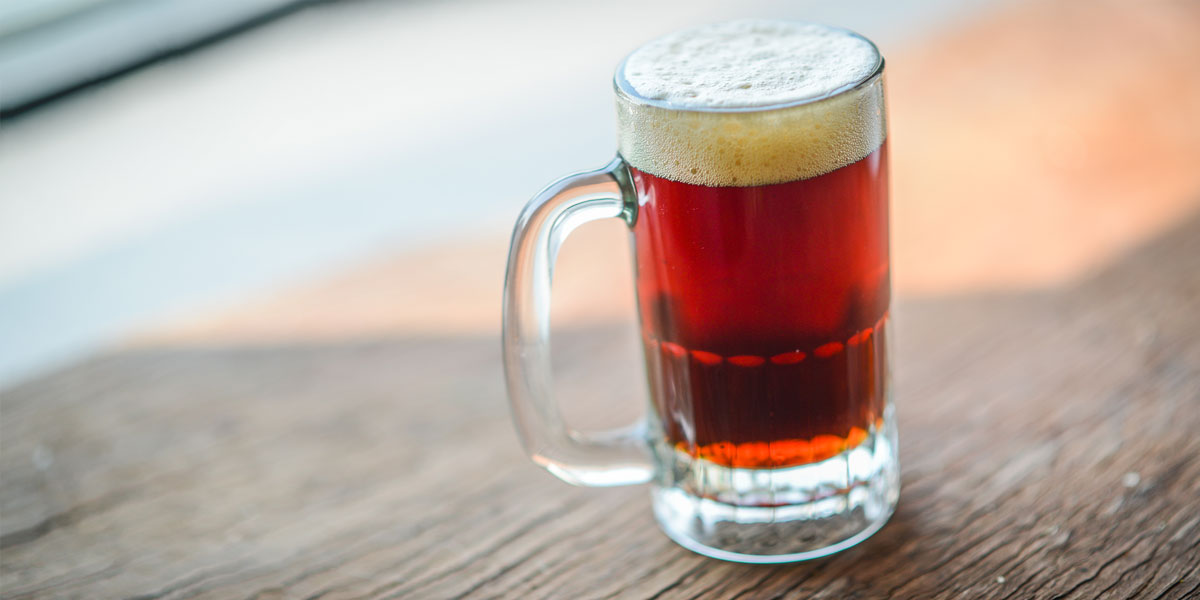All beers are not the same, and avid drinkers know that each drink packs a unique flavor and experience of its own.
There are over 100 types of beer, but the three main beer types are Lager, Ale, and Lambic. Given the countless options available in the market, it is impossible to try each one in a lifetime to pick what suits you. Therefore, this guide will sum it all up, so you can easily take your pick and, right off the bat, find the perfect beer for yourself.
Learning the three main types is essential so you understand what makes the difference between imported and domestic.
Table of Contents
ToggleMain Beer Types: Lager, Ale, and Lambic
For someone new to beers, it is easy to get lost between the wide array of ale, real ale, wild ale, craft beer, lager, and so on. However, at the very core, beer is produced using malt and then goes through fermentation with bacteria or yeast. Finally, it is categorized into three main types:
1. Lager

The word lager is also known as “lagern” in German – it means “to store.” The name sums the entire beer up. To clarify, you can lager any beer by storing it at low temperatures, and that’s it.
Lager beer utilizes Saccharomyces Pastorianus, a different type of yeast, to produce a crisp and clean taste. These yeasts make the fermentation cleaner. That is to say, no fruitiness or spiciness is added; it is a pure, straightforward flavor. Moreover, this is exactly how crisp and refreshing lagers are produced that you might be familiar with.
Now, this particular yeast only works at lower temperatures, approximately 44.6 to 55.4 F. That means it is a bottom-fermenting yeast and takes comparatively longer to fully ferment.
To sum it up, lager is just a beer that uses a different variation of yeast that gives it the distinction from ale.
2. Ale

During the 15th century and half of what followed, ale remained the significant drink of England. However, near the mid-16th century, the German and lowlands beers were making their way to the rest of the world.
Since the water was not safe to consume and milk mainly was for making butter and cheese, ale was brewed from barley. This used to be the staple drink and had its’ sweet and flavored taste with a kick of spices.
On the contrary, hops are used to make beer, and that makes it far stronger and bitter. Nevertheless, in the 21st century, ale and beer are thought of as the same, but the case is that ale uses ale yeast for its fermentation process.
In contrast to Lager, Ale uses saccharomyces cerevisiae and ferments at higher temperatures of 60.8 to 68 oF. Making it a top-fermenting yeast.
Here’s the critical bit – German Weissebier, English Ales, New England IPAs, and Belgian Saison all have their very own choice of yeast that makes the final beer develop its distinct characteristics.
3. Lambic

Finally, Lambic is a Belgian-brewed beer in the Pajottenland region and has existed since the 13th century. Unlike the other beer styles, this one is made by placing liquids in open vats and allowing them to collect naturally occurring yeast in the air to carry out fermentation spontaneously.
It is later stored in blends and casks of 1 to 3-year-old lambics that are intermixed to create the final beer. Moreover, you can also add fruit to the beer and play with the flavor.
As for fruits, there’s a wild yeast called Brettanomyces, that occurs on the fruit skin and can genuinely add a funky kick to the beer. On the contrary, for a more sour final product, bacteria can be added to produce lactic acid and give it more of a vinegar flavor.
What is Domestic Beer?
If you were asked what domestic beer is before reading this article, you are highly likely to associate it with locally known brands or other famous American Brands. Domestic beers are, as the name suggests – made and sold on a national level. Something like a local product that you will not expect to find in another country.
These are a popular and convenient choice for avid drinkers because they are easily accessible and offer comparatively better prices. The common choices of lagers available within the US contain about 4 to 5% alcohol content. This is mainly for the US, and now you understand the domestic is lager – a clean and crisp beer. Some commonly bought lagers are:
- Michelob Ultra
- Bud Light
- Coors Light
- Budweiser
- Miller Lite
What is Imported Beer?
In contrast to domestic beer, the imported ones are those that are brewed outside of the US or your country of origin. If you are not from the US, then even the domestic ones mentioned above are counted as “imported” for you.
For someone who drinks often, it is not difficult to tell if a beer is domestic or imported because of its distinct taste. The imported ones are commonly referred to as “premium or specialty beers” because of their higher price tags.
Now, this price is only due to the import laws and country of origin. So, you know that beer in that country is affordable for the local population while you have to pay a price that includes other taxes.
Here are examples of popular imported beers:
- Corona Extra
- Heineken
- Guinness Extra Stout
- Tecate
- Pacifico
The Winner Between Domestic and Imported Beer
As you have learned, it all comes down to where you live. That is to say, based on your origin country, your domestic may be a lager, ale, or a lambic. There is no fair contrast to say which is better because:
- Lager: Clean, Crisp, and Refreshing.
- Ale: Sweet and Fruity.
- Lambic: Can be sweet and Sour.
Now, based on the flavors, the better beer is the one that offers you the flavor suited for your taste buds, and that’s it. After that, cost is the only key determinant between imported and domestic. Therefore, if cost is not an issue for you, then imported beer is better, but if you want something affordable, then domestic beer is your best option.
Conclusion
When it comes to Domestic Beer vs. imported Beer, there are over 100 types available, but they can be summed to three main types based on the flavor that they offer. The alcohol content remains almost the same throughout, so there is not much of a “key factor” other than the cost.
As aforementioned, in the competition of domestic and imported, only your taste is the judge along with how much you want to spend on a beer. However, it’s all about experimenting and exploring new flavors, so you’ll only truly know by giving it a go.

I am a passionate beer connoisseur with a deep appreciation for the art and science of brewing. With years of experience tasting and evaluating various beers, I love to share my opinions and insights with others and I am always eager to engage in lively discussions about my favorite beverage.
















